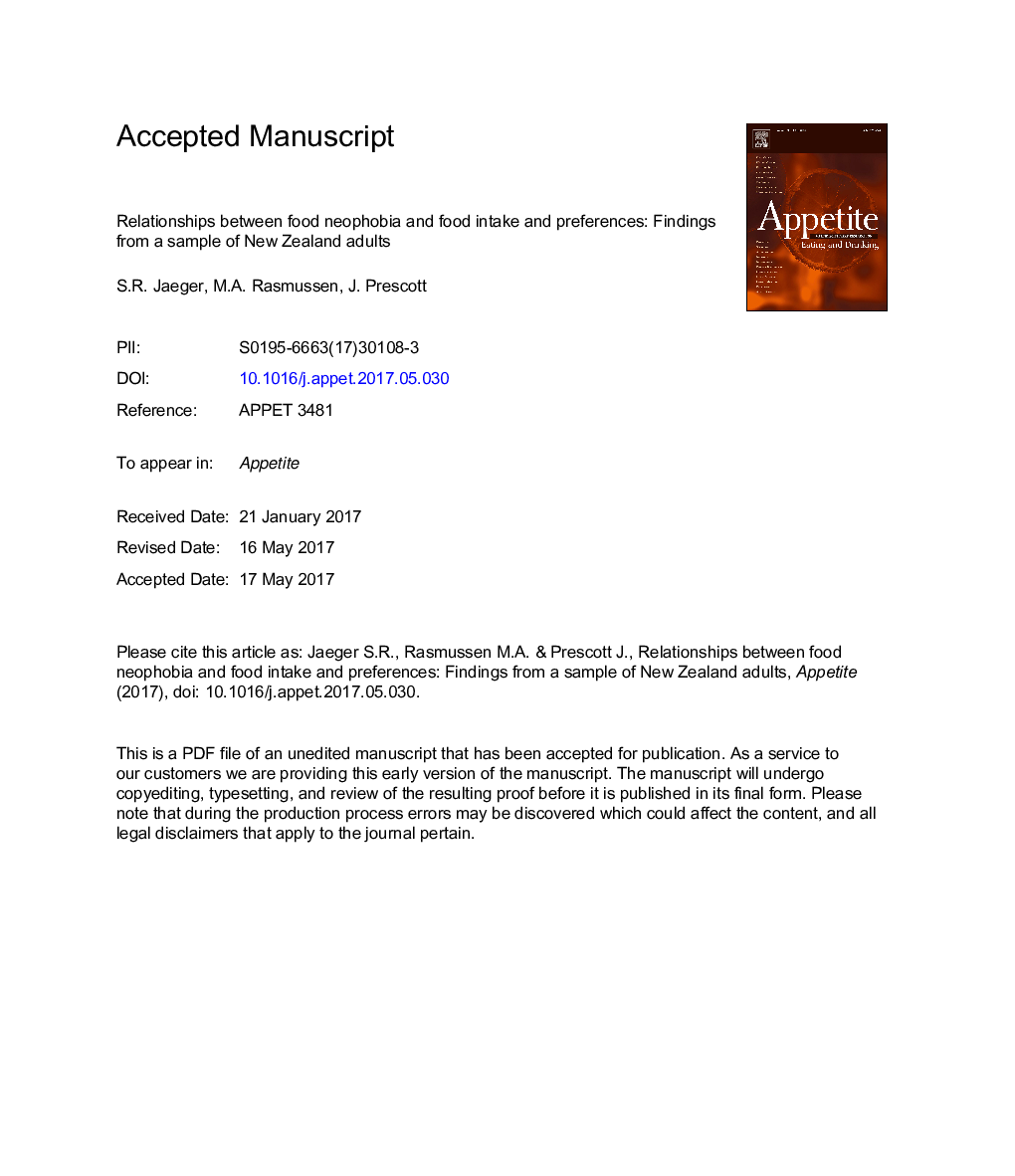| کد مقاله | کد نشریه | سال انتشار | مقاله انگلیسی | نسخه تمام متن |
|---|---|---|---|---|
| 5044023 | 1475364 | 2017 | 43 صفحه PDF | دانلود رایگان |
عنوان انگلیسی مقاله ISI
Relationships between food neophobia and food intake and preferences: Findings from a sample of New Zealand adults
ترجمه فارسی عنوان
رابطه بین نئوفوبیای غذایی و مصرف غذا و ترجیحات: یافته های نمونه ای از بزرگسالان نیوزیلندی
دانلود مقاله + سفارش ترجمه
دانلود مقاله ISI انگلیسی
رایگان برای ایرانیان
کلمات کلیدی
نئوفوبیا غذا، تنظیمات غذایی، یادآوری غذا، فصل، انتخاب غذا، انواع رژیم غذایی،
موضوعات مرتبط
علوم زیستی و بیوفناوری
علوم کشاورزی و بیولوژیک
دانش تغذیه
چکیده انگلیسی
Food neophobia (FN) has been shown to be a strong influence on food preferences using primarily small data sets. This has limited the explanatory power of FN and the extent to which it can be related to other factors that influence food choice. To address these limitations, we collected Food Neophobia Scale data from 1167 adults from New Zealand over a 45-month period. Participants also completed a 112-item food preference questionnaire and a self-report 24 h, a 145 item food intake recall survey, and the Food Choice Questionnaire (FCQ). As a way of providing a structure to the food intake and preference data, in each case the food items were condensed into patterns described in terms of the foods/beverages with highest factor loadings. We then determined the impact of season and participant age, gender, education and income on these factors, as well as the interaction of these variables with FN scores, divided into tertiles. FN was a strong influence on both intake frequency and preferences in the majority of the intake/preference factor patterns. When significant associations with FN were established, both frequency of intake and preference was lower among high FN individuals. Notably, the effect of FN on food preferences was evident on many commonplace foods making up the diet, suggesting that high FN individuals like food overall less than do those with lower degrees of FN. Seasonal effects in food intake were demonstrated, but with smaller impact for higher levels of FN. While associations between FN varied according to all demographic variables, these relationships varied as a function of the intake/preference patterns. Overall, the results suggest that FN is an important barrier to dietary change and addressing diet-related health problems.
ناشر
Database: Elsevier - ScienceDirect (ساینس دایرکت)
Journal: Appetite - Volume 116, 1 September 2017, Pages 410-422
Journal: Appetite - Volume 116, 1 September 2017, Pages 410-422
نویسندگان
S.R. Jaeger, M.A. Rasmussen, J. Prescott,
